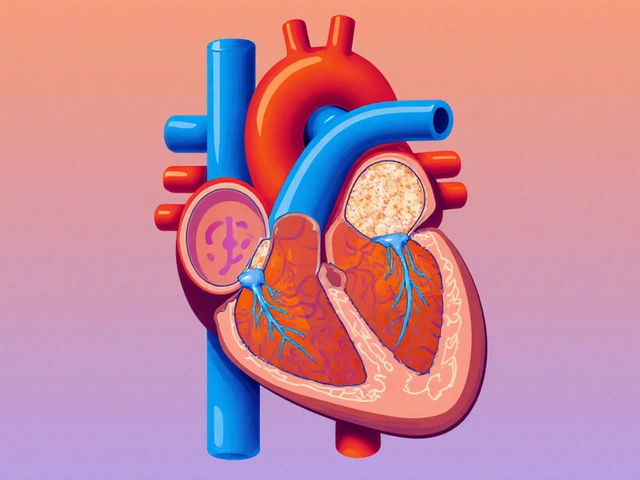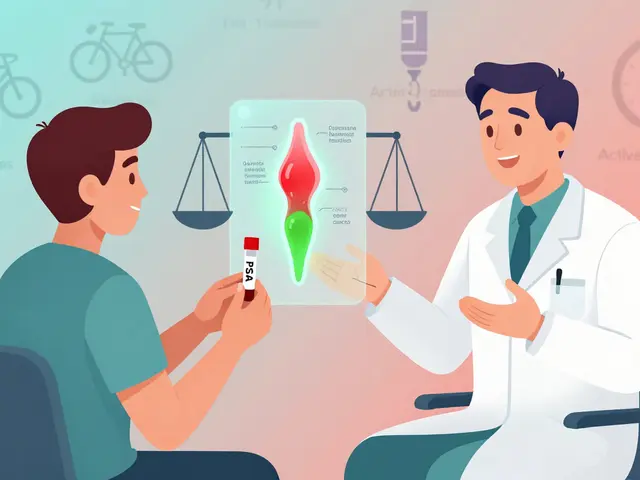Drug Interactions: Same Risk for Generic and Brand Medications
January 30 2026Gastrointestinal infections: what to watch for and what to do
Stomach bugs hit fast and messy. Whether it’s a norovirus at a party, foodborne Salmonella, or traveler's diarrhea from a street vendor, the basics are the same: diarrhea, vomiting, cramps, sometimes fever. You don’t always need a doctor, but knowing when to act and how to safely manage symptoms keeps you out of trouble.
What causes them and common symptoms
Viruses (norovirus, rotavirus) cause most cases. Bacteria like E. coli, Salmonella, Campylobacter, and parasites such as Giardia also cause illness—often linked to undercooked food, raw shellfish, contaminated water, or poor hand hygiene. Typical symptoms: loose stools, stomach cramps, nausea, vomiting, mild fever. Blood in stool, very high fever, or severe belly pain usually means a bacterial cause and needs medical attention.
Dehydration is the biggest risk. Signs include dark urine, very little pee, dizziness, dry mouth, or extreme weakness. Kids and older adults get dehydrated faster—watch them closely.
Practical treatment and when to see a doctor
Start with fluids. Oral rehydration solutions (ORS) are best because they replace salts and sugar in the right balance. If you don’t have ORS, mix 6 teaspoons sugar and half a teaspoon salt in 1 liter of clean water. Sip slowly but steadily. Avoid sugary sodas and alcohol.
Food: eat light and simple once vomiting eases. Plain rice, toast, bananas, and yogurt can help. If lactose intolerance develops after an infection, skip milk for a few days. Over-the-counter options: loperamide (Imodium) can reduce diarrhea in adults without fever or bloody stools. Bismuth subsalicylate (Pepto-Bismol) helps travelers’ diarrhea and nausea for some people. Don’t give aspirin-containing products to children.
Antibiotics are not automatic. They help specific bacterial infections (severe bloody diarrhea, high fever, or confirmed bacterial cause). For traveler's diarrhea with significant symptoms, a short course of azithromycin or another targeted antibiotic may be prescribed—only by a provider.
Probiotics like Lactobacillus rhamnosus GG or Saccharomyces boulardii can shorten illness a bit in many cases. Clinical trials show they often reduce duration by about a day when taken early. They’re safe for most people but check with your doctor if you’re immunocompromised.
Get medical help if you have persistent vomiting, signs of severe dehydration, bloody stool, severe abdominal pain, fever over 39°C (102°F), or symptoms lasting more than 48–72 hours. For infants, the elderly, or anyone with chronic illness, call sooner.
Prevention is simple: wash hands often, cook food thoroughly, avoid raw shellfish and unpasteurized dairy, drink bottled water when traveling in risky areas, and keep sick people away from food preparation. Vaccines exist for rotavirus (infants) and can cut a major cause of severe gastroenteritis.
Bottom line: most stomach bugs get better with fluids, rest, and simple care. Watch for danger signs, use medications carefully, and ask a clinician if symptoms are severe or don’t improve.
 29 May
29 May
Ampicillin and Gastrointestinal Infections: A Closer Look
Ampicillin is an antibiotic that I recently learned about, and I wanted to share some information with you all, especially regarding its role in treating gastrointestinal infections. This drug belongs to the penicillin family and works effectively against a wide range of bacteria causing such infections. It's fascinating to know that ampicillin can help alleviate symptoms like abdominal pain, diarrhea, and fever by killing the harmful bacteria in our gut. However, it's crucial to remember that antibiotics should be taken only when prescribed by a doctor, as misuse can contribute to antibiotic resistance. In conclusion, ampicillin is a potent weapon against gastrointestinal infections, but let's ensure we use it responsibly.
Read More...




